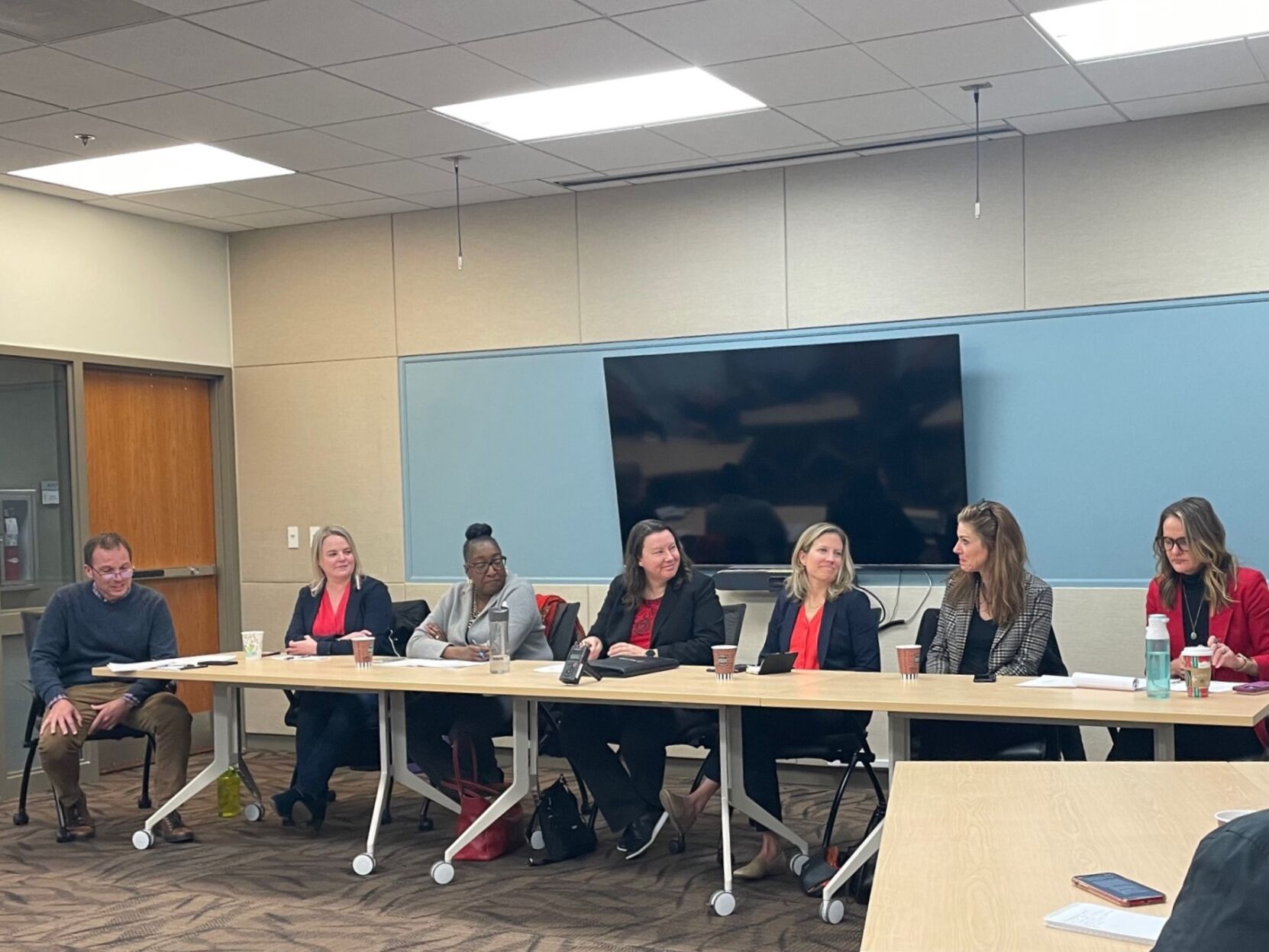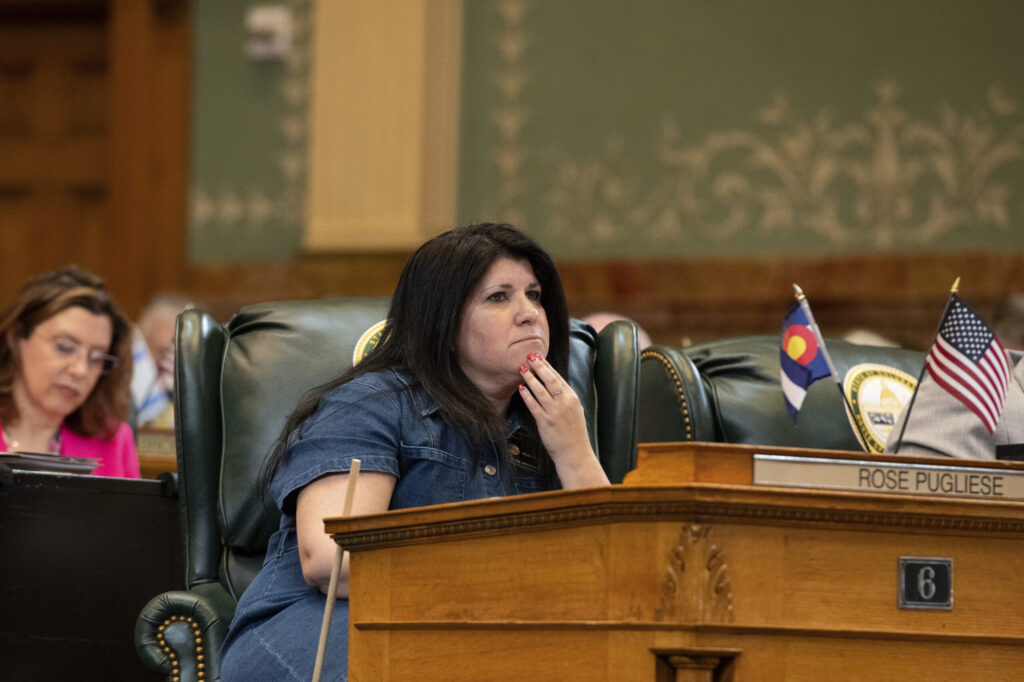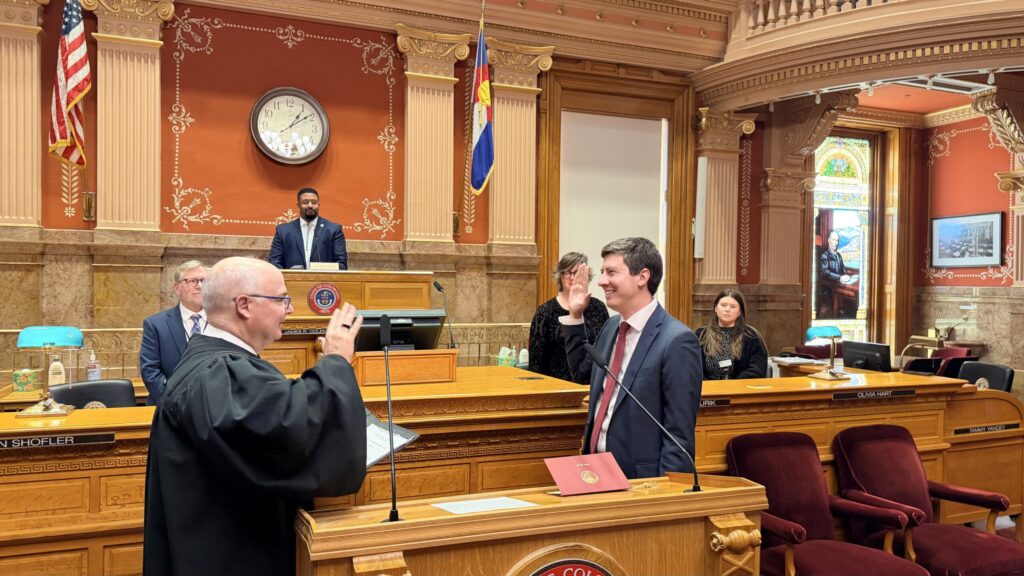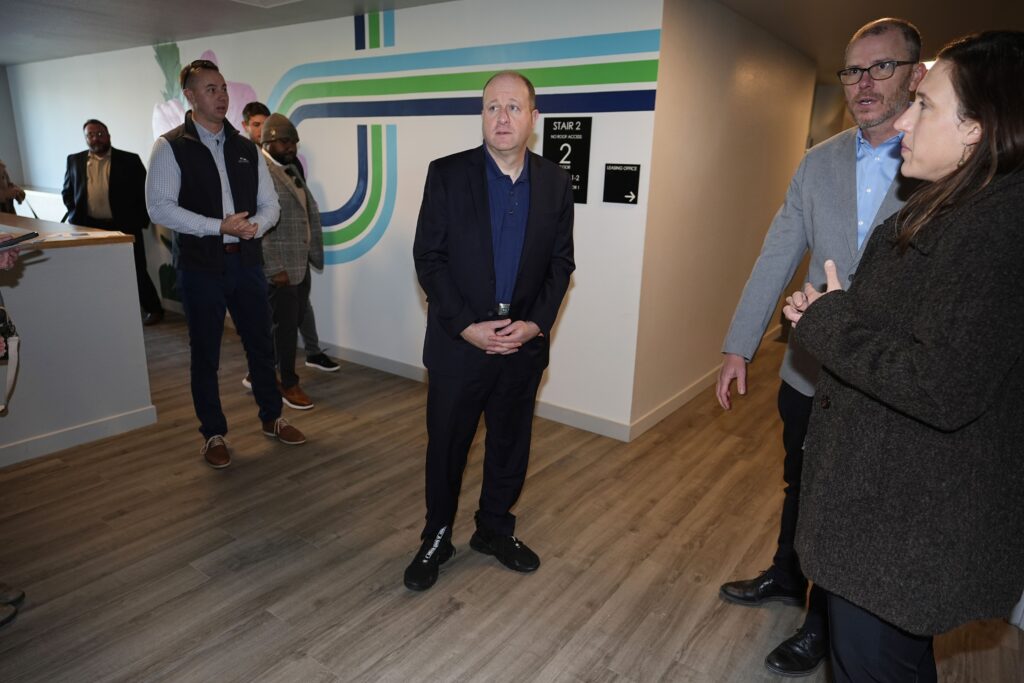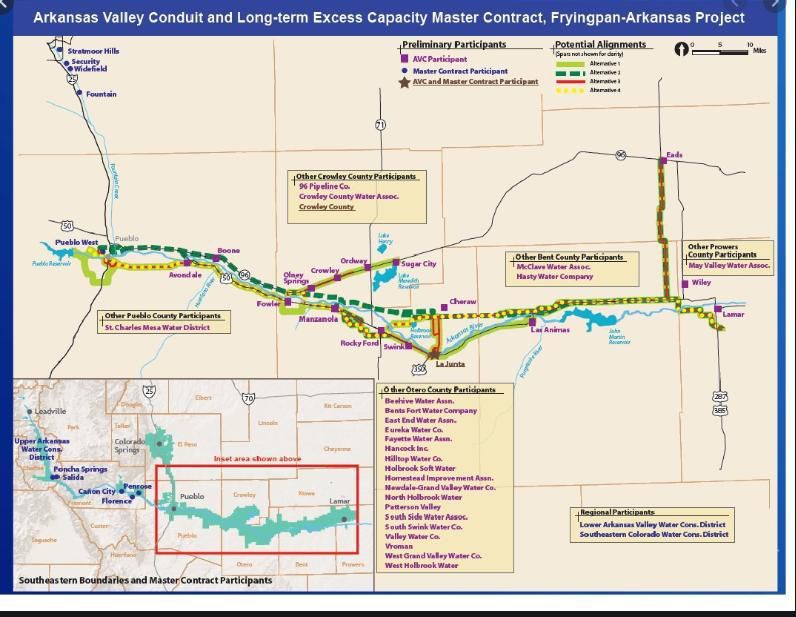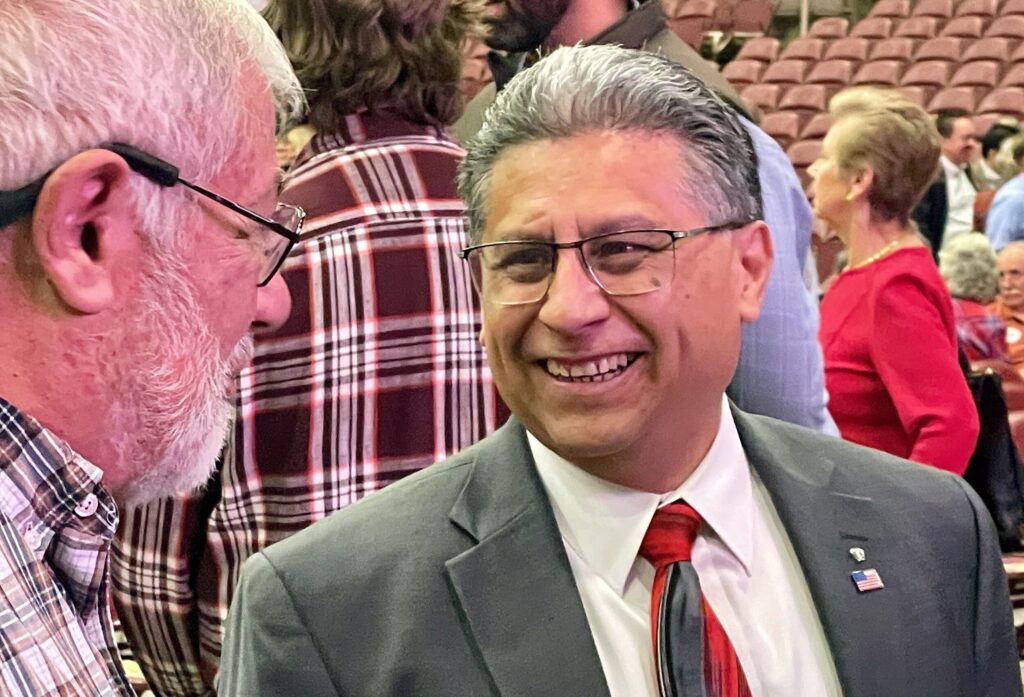Denver’s homelessness prevention efforts improved, but panelists agree plenty of work remains
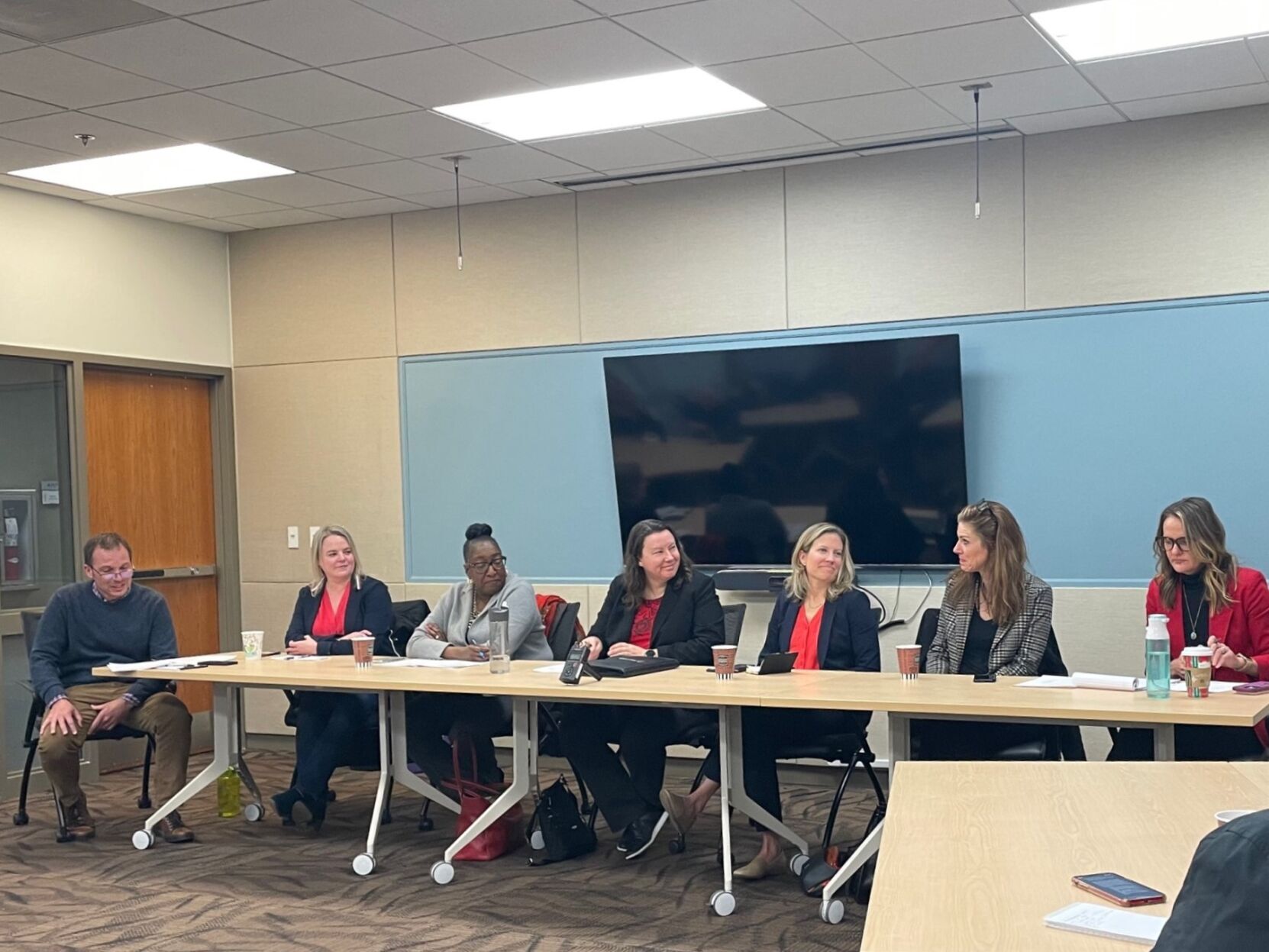
Despite Denver’s recent multi-year effort to ramp up services to prevent homelessness, Denver’s Office of Housing Stability officials got an earful of criticism – and suggestions for improvement – Friday from area homeless advocates and homeless people themselves.
The housing stability office empaneled a group of subject matter experts for a discussion on the city’s burgeoning homeless population, and seeming lack adequate of services to address more needs.
Panel members included: HOST’s Executive Director Britta Fisher, Colorado Coalition for the Homeless Vice President of Communications and Public Policy Cathy Alderman, Urban Peak Denver CEO Christina Carlson, Mile High United Way Chief Impact Officer Vanecia Kerr, Metro Denver Homelessness Initiative Executive Director Dr. Jamie Rife and Colorado Division of Housing’s Office of Homeless Initiatives Director Kristin Toombs.
The city’s recent efforts include additional housing, warming shelters, more conversations about the issue and better methods of gathering homeless population statistics.
Fisher said her appointment as the head of the HOST shows government officials are serious about tackling the problem, as the position didn’t even exist three years ago.
In those three years, the office reports it has helped some 5,000 households regain stable housing, helped build or save 2,000 affordable homes and created 225 housing units with supportive services, Fisher said.
“We now have a pipeline of 1,500 more units to come,” Fisher said. “I think that is a tremendous asset to our community.”
A key improvement, she said, was the shift from overnight shelters to 24/7 shelters – which advocates say increases accessibility.
Colorado Division of Housing’s Toombs said government officials are focused on how they can build on these services collectively to help people get assistance they need safely and quickly. First, they need help identifying who needs the services.
“We can’t help you if we don’t know you exist,” Toombs said. “It’s really important for us to work together across our various programs, systems and at the community level knowing in real time, by name, who needs support.”
Colorado has expanded its statewide Homeless Management Information System (HMIS), she said, which collects data from across the state. This helps Denver and other cities understand both the need and the affect of their work.
Urban Peak’s Carlson said she is proud of the improved coordination and communication levels between providers and government leaders, but investments into more resources are needed to prevent chronic homelessness before it begins.
The conversation about homelessness and what it looks like has developed in a positive way, Carlson said, which gives promise to the future of homelessness mitigation efforts.
This conversations got jump started during the pandemic, said Rife of the Metro Denver Homelessness Initiative.
“One of the things about COVID is that it really helped force people to come together and collaborate in a way that we hadn’t before to keep people safe,” Rife said. “It also highlighted the inherent vulnerabilities of COVID-19 for people who do not have a home and it brought to light the level of resources we really need to tackle this issue.”
Alderman agreed.
“I think what a lot of this taught us is that the integration of housing and health is paramount,” Alderman said. “Providing housing to individuals who have high health care needs without providing healthcare services doesn’t ensure health and stability.”
She said now they have clinics that partner with Colorado Coalition for the Homeless, clinics within some shelters and have expanded their street medicine team.
Another positive of the pandemic was an increase in public understanding and public will, HOST’s Fisher said
“When we asked people to stay home, it was very apparent that people without homes can’t stay home,” Fisher said. “That general understanding that your health and your home are so connected has been a key point.”
Rife discussed the new system for collecting homelessness data, saying the number of people contributing to the HMIS has quadrupled. That means officials are getting to a point where they will no longer have to use data from one-night snapshots.
The use of HMIS to collect real-time data, instead of simply collecting data from shelters in a single night, allows the state to collect a more accurate and complete picture, Rife said.
Mile High United Way’s Bridging the Gap Program, which has been around since 1887, evolves with its community and is assisting young people who come out of the juvenile justice or child welfare system, Kerr said.
The non-profit organization’s efforts continue to be successful, giving an example of a recent young woman who left the program to attend nursing school.
City officials held a homeless advisory meeting following the panel discussion where members of the homeless community voiced their concerns and requests to the city. Many of them voiced frustration that they keep hearing the same things from the City, but not seeing better results.
“I don’t see the homeless population going down,” one of the speakers said. “I see it on the rise.”
Speakers, for the most part, did not identify themselves and weren’t required to.
The man who identified himself as homeless said city officials need to stop funding the police and start getting people housed.
“Once you start housing people, the crime rate will start going down,” he said.
Another concern was homeless camps being swept away. In the already freezing weather, people struggle even more when their belongings are thrown away, several speakers said.
City officials, including Mayor Michael B. Hancock, contend camps are rife with sanitation issues, drug use and sometimes fire hazards with excessive propane bottles.
The panelists said they are seeing an “unprecedented” number of resources with “huge investments” from the American Rescue Plan Act funding. These resources will provide a “huge opportunity” to the city to mitigate homelessness, Alderman said.
A huge part of tackling homelessness, Rife said, is addressing the housing crisis as a whole. Affordability in Denver is plunging, she said, as home prices and rents keep rising. Currently people have to make $52,000 a year to not be housing burdened.
“With homelessness, we’re going to continue to see a rise if we don’t address the housing crisis that we have in our region,” Rife said. “We have to work collaboratively, we have to start building houses, we have to look at our policies.”
